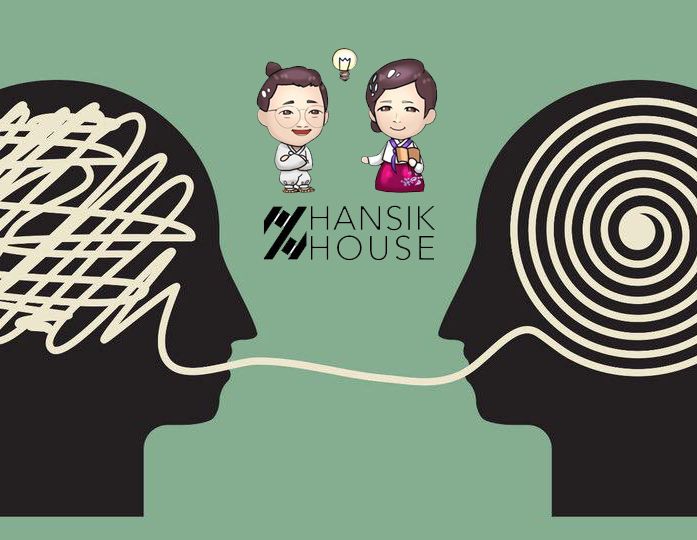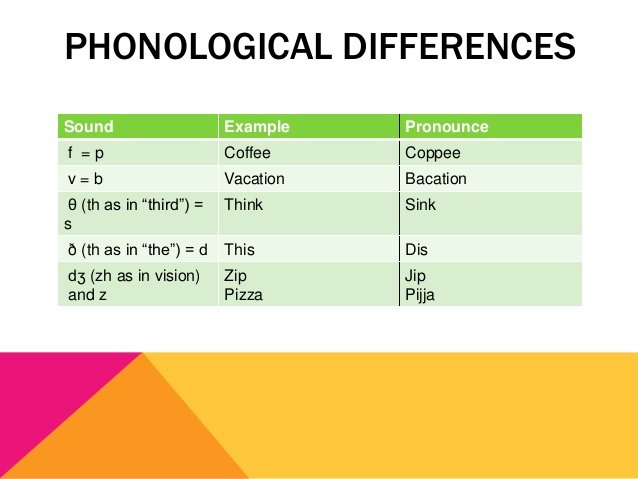
Two Sides to a Coin
Last week, I looked at the practice of “Konglish” (a bastardized Korean-American mix) and the unique sociocultural factors that have engendered a language that may not exist in the next generation of foreign Koreans. And because the Korean-American version is so dependent on immediate environmental and historical qualities, we have another form of “Konglish” in Korea that is wholly different. Let’s have a look today!

Source: Organic Korean
Much less than certain generic Korean words being injected into everyday speech in the US, Korean-Koreans have to assimilate foreign words that have no native basis into their vocabulary. Words like ‘television’ and ‘wifi’ were brought to Korea during its development period rather than being developed on home soil. Evidently, it was easier to incorporate the words as-is over inventing new ones with Korean roots.

Unfortunately, “beach” sounds awfully like “b!tch” in Korean… Source
The biggest difference between English pronunciation and Korean Konglish is the swapping of “v” for “b” and the “r” for “l” sounds. The Korean syllabic system does not contain certain sounds that are very common in the English language and this creates a awkward pseudo-translation that requires tweaking above all else. Words have to be chopped up into distinct parts and letters need to be replaced with ones in the Korean alphabet.

Here are some fun simple ones that’ll help you speak in Konglish in no time!
Victory is “bik-toh-ree”
Champion is “chem-pee-ohn”
Korea is “koh-ree-ah”
Cheese is “chee-jh”
Bitcoin is “Bee-th-koh-een”
Korean Konglish isn’t just limited to the direct transliteration of foreign words either. In true Korean fashion, the culture tends to short phrases into syllables and mash them together. As a result you head a number of phrases in Korean that have partial roots in English words but combine in a way that seems 100% Korean. Examples -
Officetel = Office + Hotel
Selca = Self + Camera (Selfie)
Webtoon = Web (internet) + Cartoon
Dica = Digital + Camera
Fun + Easy. I really enjoy Konglish, to the great dismay of business language teachers, because it keeps the limited vocabulary of any speech fresh and in ongoing collaboration with international influences. Konglish is Korean mixing with the world to grow a once provincial mode of communication.
For more on this, I found a great little slideshow lecture by Ffarzana Lee here.
Compared to our Neighbors
The use or lack of use of Konglish might be the most distinguishing factor between North and South Korean. While the South is prone to internal influences and waves of trends, the North obviously has a ginormous filter against international intervention. Even with technologies that came from abroad, North Korea institutes new words that mostly describe what the thing does as opposed to using its invented name.

^South Koreans phonetically use the word “ice cream” in daily life while North Koreans use the translated words for “ice cracker.”
I’ll go into some of these interesting examples in another post. Do you have your own form of ‘Konglish’? What do you think about these language hybrids?

'Bitch'festival, no way! hahaha 😂
Actually, selfie stick is originally from Korea as far as I know, so I happened to hear that in Japan, the selfie stick is called Zidori selka bo-(自撮りセルカ棒) instead of selfie stick or Zidori stick. What an interesting story haha
Well, sharp pencil? would be another example of Konglish, IMO. And maybe, drama? soap opera? haha
Downvoting a post can decrease pending rewards and make it less visible. Common reasons:
Submit
These are great examples! Thanks @stella12님 =)
Downvoting a post can decrease pending rewards and make it less visible. Common reasons:
Submit
ㅎㅎㅎㅎ 한식하우스님이 올려주는 글, 하나같이 너무 재미있어요^^
Downvoting a post can decrease pending rewards and make it less visible. Common reasons:
Submit
저도 이제부터 콩글리쉬에 대한 블로그를 만드려고요...나중에 보세요
Downvoting a post can decrease pending rewards and make it less visible. Common reasons:
Submit
Actually this is what global world means.But i found it very dangerous for cultures.
Downvoting a post can decrease pending rewards and make it less visible. Common reasons:
Submit
Exactly right, the concept of global is very threatening to our traditional understanding of local culture.
Downvoting a post can decrease pending rewards and make it less visible. Common reasons:
Submit
Hello @hansikhouse, I nominated you take part in the Seven day Black and White Challenge in my last post.
Downvoting a post can decrease pending rewards and make it less visible. Common reasons:
Submit
Ive noticed that some of the younger Koreans in their adolescence find it difficult to differentiate between native Korean words and words borrowed from English (ie: battery, cup, shirt, etc). It is quite strange...
It would be like me asking a Japanese person how to say 'tsunami' in English, or asking French person how to say 'deja vu' in English. We already incorporated those words into the English language.
Downvoting a post can decrease pending rewards and make it less visible. Common reasons:
Submit
That's a great point and I'm sure more and more universal terms will be absorbed. I'm going to start asking French people that to see how they react... =P
Downvoting a post can decrease pending rewards and make it less visible. Common reasons:
Submit
ㅎㅎ 이런시선으로 보니 콩글리시가 상당히 다르게ㅡ다가오는군요 v,b발음 l,r발음은 진짜ㅡ대표적으로 발음하기 어려운 것 같습니다 ㅠㅠ
Downvoting a post can decrease pending rewards and make it less visible. Common reasons:
Submit
ㅎㅎ 한글에 없어서 힘든것 같습니다. 하지만 이탈리아어 r 발음은 한글로는 금방 따라할 수 있습니다. 신기 합니다. 읽어주셔서 고맙습니다 케인님
Downvoting a post can decrease pending rewards and make it less visible. Common reasons:
Submit
모두 이해하지는 못했지만,
콩글리쉬 관련된 포스팅 잘 보고 갑니다. 발음 차이로 인한...발생
한식하우스님의 포스팅을 보면서 영어 공부합니다^^
Downvoting a post can decrease pending rewards and make it less visible. Common reasons:
Submit
고맙습니다 제이톱 님! 그 알파벳 발음이 정확한것이 유창 보다 중요한것 같습니다. 재밌게 읽어주셔서 고맙습니다!
Downvoting a post can decrease pending rewards and make it less visible. Common reasons:
Submit